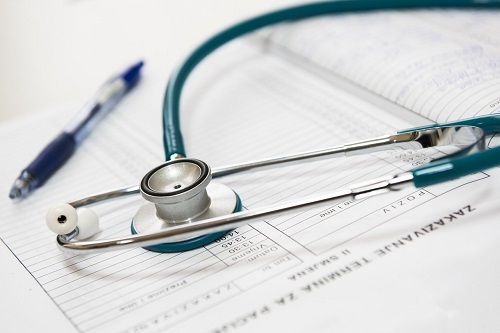 As you age, your body begins to change and your immune system function often starts to decline. As a result, you can become more susceptible to acute and chronic illnesses.
As you age, your body begins to change and your immune system function often starts to decline. As a result, you can become more susceptible to acute and chronic illnesses.
One of the best things you can do to prevent or treat these illnesses is to catch changes in your body as early as possible. And, the best way to catch these changes is to make sure you’re performing these four health tests on a regular basis.
1. Blood Pressure Test
High blood pressure is often referred to as a silent killer. People with high blood pressure often do not present any symptoms and may not even know their pressure is elevated until after they’ve experienced a serious incident like a heart attack or stroke.
Having your blood pressure checked once a year is not sufficient for letting you know whether or not you are at risk of a stroke or heart attack. After all, your blood pressure reading can vary depending on factors like your emotional state or whether or not you’re talking during the test.
Older adults can get the most accurate data by measuring their blood pressure at the same time every day. This can give you a good idea of your baseline, and you’ll notice increases or drops much quicker than you would if you waited until your next checkup.
2. Temperature Measurement
If you’re a senior, it’s also a good idea for you take your temperature with a thermometer on a regular basis. Seniors are more susceptible to colds, influenza, and other illnesses that can be accompanied by a fever. But, a fever often looks different for seniors than it does for younger individuals.
A temperature of 98.6 degrees Fahrenheit is typically considered average. However, most seniors naturally have an average body temperature that is a bit lower. One study found that the average temperature of 150 seniors was between 97.3 and 97.8 degrees Fahrenheit.
If seniors aren’t aware of their normal temperature, they might develop a fever without realizing it, which could cause them to wait to seek treatment until it’s too late.
3. Dental Exams
Many seniors take medications that are known to negatively affect their dental health. Some common ones include:
- Diuretics
- Antihistamines
- Antidepressants
- Statins
- Anticoagulants
- Antibiotics
- Thyroid medications
- Diabetes medications
In addition to taking potentially problematic medications, many seniors also are guilty of skipping cleanings altogether, often because they can’t drive themselves to their appointments or because they no longer have dental insurance after retirement.
Regular dental screenings (every six months) are essential for seniors to help them avoid cavities, tooth decay, and gingivitis. These conditions can be quite painful, and they also increase the risk of developing other issues like heart disease, pneumonia, and diabetes.
4. Bone Density Scans
Finally, seniors should also receive regular bone density scans since they face an increased risk of developing osteoporosis, which occurs when the bones become weaker and more prone to fractures.
Bone density scans do not need to be performed as frequently as the other tests mentioned above. The frequency will vary depending on your test results. For example, if you are considered to have moderately low bone density, you will need to have your next test performed in five years. But, if you’re considered to have borderline osteoporosis, you’ll need to be tested again in a year.
Performing these four tests (or having them performed) regularly can help you stay on top of your health and enjoy a higher quality of life. Be proactive and don’t wait until it’s too late to start taking testing seriously.


Comments